

29.07.2025
893
Why is this trend popular? The majority of people agree to relocate to Dubai because the standard of living there is one of the highest in the world. Good income plus a lenient tax system – isn't that wonderful? However, there are many other reasons for relocation: climate features, low crime rates, and a quality education system.
What should one pay attention to? Yes, there are numerous advantages to moving to Dubai. But to fully enjoy them, certain conditions must be met. At the very least, one needs to find a good job, which is not always simple. However, nothing is impossible here either. As they say, where there's a will, there's a way.
Dubai is a rapidly developing city in the UAE, where just half a century ago there was only arid desert. In this desert, there was a small settlement with a population of just over 1,000 people. Local residents were engaged in growing dates, breeding camels, pearl diving and fishing, as well as participating in maritime trade. People were forced to work in unbearable conditions and still faced shortages of food and water.
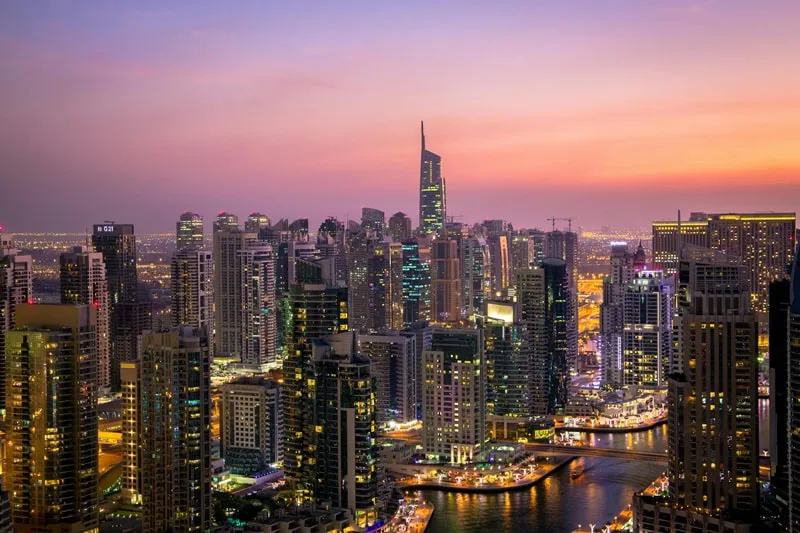
In 1966, large oil reserves were discovered in Dubai. Just three years after this event, active extraction of this valuable resource began. The income from its sale became the key factor that allowed the desert landscape to transform into one of the most developed places in the world.
At present, the UAE's oil industry accounts for only 10% of the country's budget, with construction, tourism and trade being the main sources of income. Dubai is developing very rapidly, with new architectural objects appearing in the city annually, attracting investors and tourists from around the world.
The emirate is unique, as it is located in the desert yet amazes with its technological advancement. A large number of innovative projects have been implemented in its territory. Dubai has water hotels shaped like sails, artificial islands in the form of palm trees, futuristic bridges and many other amazing sights.
In the United Arab Emirates, Islam is the state religion. This is manifested not only in the celebration of Muslim holidays and observance of religious ceremonies but also in strict adherence to the fundamental principles of faith. For example, during the holy month of Ramadan, public consumption of food and drinks, as well as smoking, is prohibited during daylight hours.
Traditional views on the role of women in society are still preserved in Dubai, which is reflected in dress code requirements. There are special zones designated exclusively for women or men. For instance, recreational parks have been built in the city that are accessible only to women.
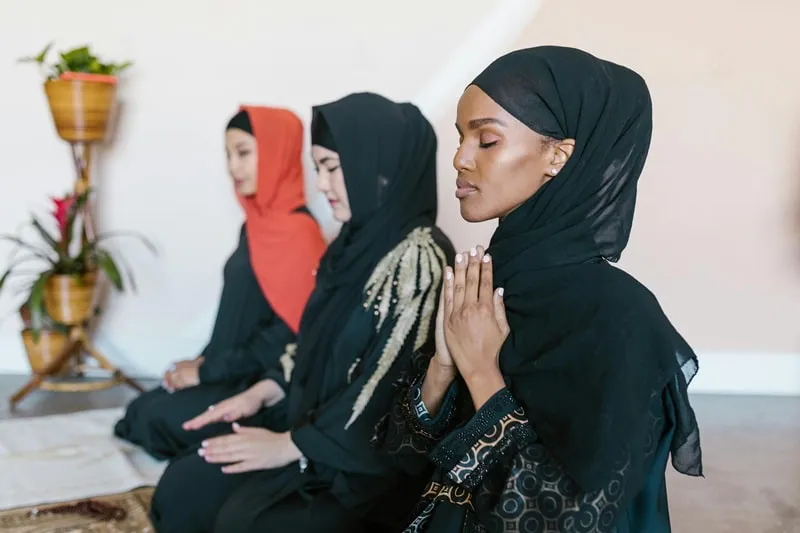
In the United Arab Emirates, there are fines for smoking and appearing intoxicated in public places. It is important to behave decently, avoid using profanity, and remain friendly and cheerful. Violations such as theft, hooliganism, and other forms of antisocial behaviour are strictly punished.
The majority of the UAE population practises Islam. Citizens respect other religions and expect the same respect for their values.
At the end of the 21st century, many aspired to move to the USA, especially to sunny Florida. However, with the rapid development of the UAE, people's attention shifted to Dubai. The advantages of moving to this place from Russia are considered below.
The UAE economy is well developed thanks to rich oil resources, which account for 24.5% of total GDP. Trade and industry also occupy a significant share – 13.1% and 10.4% respectively. The country effectively invests oil revenues in various sectors, developing an innovative economy and attracting foreign capital. The creation of free economic zones helps attract foreign investors. The inflation rate in the Emirates is significantly lower than in the European Union.
The high standard of living in the UAE is a result of economic development. Dubai is one of the most comfortable places to live with a family. This emirate values qualified specialists, as the country's leadership actively attracts them for business development.
For example, foreign engineers in Dubai receive high salaries and additional benefits (medical insurance, company housing and a car). Moreover, there is no personal income tax in the region.
Upon obtaining residency in the UAE, you can qualify for tax benefits. For instance, you will be exempt from income tax on salary, sale and purchase transactions, interest, dividends, royalties, inheritance, and gifts. Business in the UAE is subject to VAT at 5% on revenue earned within the country.
The Arab Emirates rank highly in the world's safest countries rating, second only to Iceland. This is especially noticeable when visiting Dubai, where the city is constantly patrolled by police, and surveillance cameras are installed on every corner. Serious crimes such as rape and murder rarely occur here.
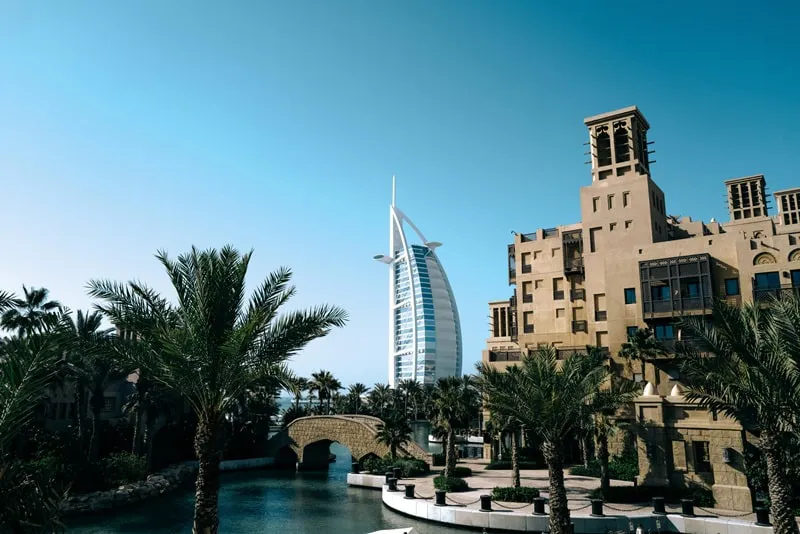
It should be noted that thefts sometimes occur in Dubai. However, the police quickly solve such cases. Citizens' lives in this region are under reliable state protection.
When evaluating the advantages of moving to Dubai based on expat reviews, one cannot ignore the convenience of transport infrastructure. Although many residents prefer to use personal vehicles, public transport is also well developed here. Buses run until late evening, and the metro operates 24 hours a day. One of the significant advantages of the Dubai metro is its almost perfect cleanliness.
An attractive aspect of life in Dubai is the warm subtropical climate of the region. The weather in the city is almost always sunny. This creates ideal conditions for water sports and outdoor activities. The water temperature almost always remains above 25°C.
However, summer months can be very hot, with air temperatures reaching 40-45°C and humidity up to 90%. Air conditioning is essential in such an environment. During the remaining eight months, there is comfortable warm weather, which allows moving to the UAE with minimal belongings.
For many immigrants, a significant advantage is Dubai's rich variety of entertainment options. This is especially important if you plan to move to the UAE with your family. It's worth paying attention to green areas where residential complexes have small parks, sports grounds, and bicycle paths.
Dubai also has numerous shopping and entertainment centres that are perfect for family leisure. The city abounds with restaurants, cafes, and eateries, allowing you to enjoy culinary delights at almost every step.
It's also worth mentioning that there’s free access to beaches, where locals love to spend their evenings.
Education in the country is divided into public, which is free for all residents, and private. Public schools follow the Ministry of Education curriculum. Private schools conduct teaching in English. Such organisations work with children of any age: from 3 to 18 years old.
There are 17 educational programmes, including American, classical British, Swiss, SABIS (British international system), CBSE (Indian programme), Russian, and IB (International Baccalaureate programme).
You can also obtain international education. There are 70 universities in the UAE, and three of them are included in the list of the world's best universities. However, foreign students have to pay for education in all higher education institutions.
In the UAE, 80% of the population consists of people who are in the country but plan to return to their homeland. There are representatives of various nationalities in the country, predominantly Pakistanis, Indians, and Egyptians. In recent years, many citizens from Russia and former USSR countries have moved here. As a result, numerous interest-based communities have emerged in the Emirates. Additionally, events for compatriots are frequently held here.
UAE residents have a good attitude towards Russians. There is no prejudice or discrimination. If a person arriving from Russia respects the culture and laws of the UAE, they are unlikely to face rights infringement. The Emirates currently ensure equal treatment of all nationalities.
If you are planning to move to Dubai (especially with children), it is necessary to consider the drawbacks of such a decision.
The UAE is a highly developed and wealthy country, which is also one of the most expensive places to live. Housing rental prices vary depending on the emirate and district, but the average annual amount is around $20,000. Additionally, you will have to spend more money on food in supermarkets and cafes than in major Russian cities, including Moscow.
Free healthcare is not provided for expats in the UAE. You will need to either obtain insurance or pay for all medical services out of pocket. Calling an ambulance will also incur charges.
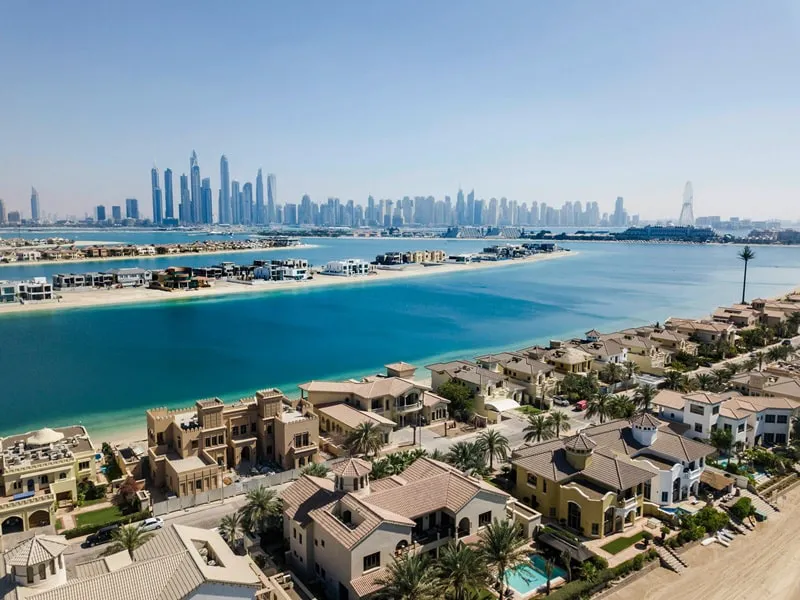
In some public hospitals in Dubai, emergency medical care may be provided free of charge, but only if the case is truly deemed urgent. Insurance policies with broad coverage are expensive, while more affordable options, typically provided by employers, cover only a minimal number of tests. Moreover, in this case, you will be limited in your choice of medical facilities. There are also insurance policies that do not cover medical services for chronic disease flare-ups.
The UAE has strict laws based on Sharia. Certain crimes, for example, distribution of prohibited substances, may be punishable by death. Additionally, alcohol consumption on streets and in public places is prohibited, as well as transporting alcoholic beverages between emirates.
Public displays of romantic affection are also discouraged. As previously mentioned, during the religious holiday of Ramadan, drinking and eating on streets is forbidden. During this period, you won't be able to access many local restaurants and cafes.
Arabic is the official language in the UAE. However, all signs, menus, and announcements are also presented in English. For example, property sale and purchase agreements available on the Dubai Land Department website are accessible in both Arabic and English.
In some parts of the region, construction of new residential complexes and skyscrapers is ongoing, causing significant noise. Additionally, densely populated areas of Dubai have heavy vehicular traffic, which also increases noise levels.
In summer, outdoor temperatures reach extremely high values (up to 45°C), which is a significant disadvantage of living in this emirate.
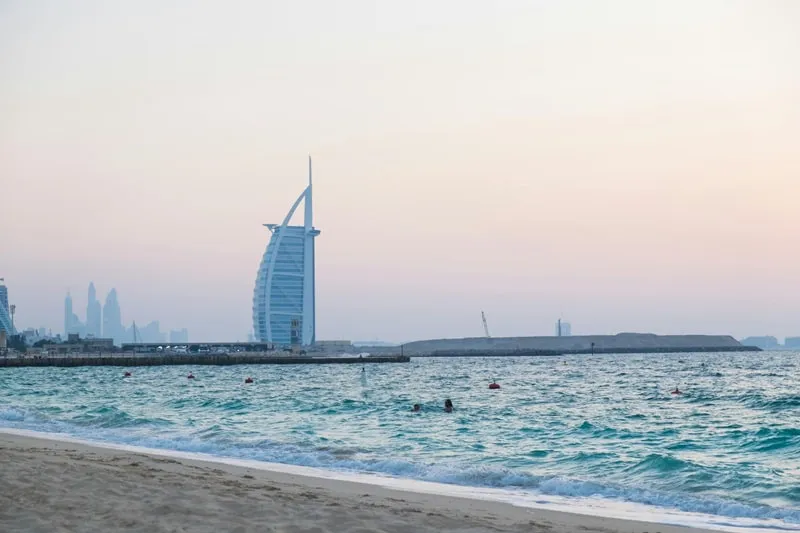
Local residents cope with high temperatures thanks to air conditioners, which are installed in all premises and at public transport stops.
After visa expiration, foreign citizens cannot obtain citizenship in the UAE. Instead, they can extend their visa and remain in Dubai if they own property. The UAE government has not set restrictions on the number of visa extensions.
In the United Arab Emirates, working on a tourist visa is officially prohibited. To conduct work activities, a residence visa is required, which provides the opportunity to freely carry out financial transactions, obtain a driving licence, enter the country without unnecessary formalities, access free medical care, enrol children in public schools and nurseries, and be exempt from income tax. All these benefits extend to the resident's family members.
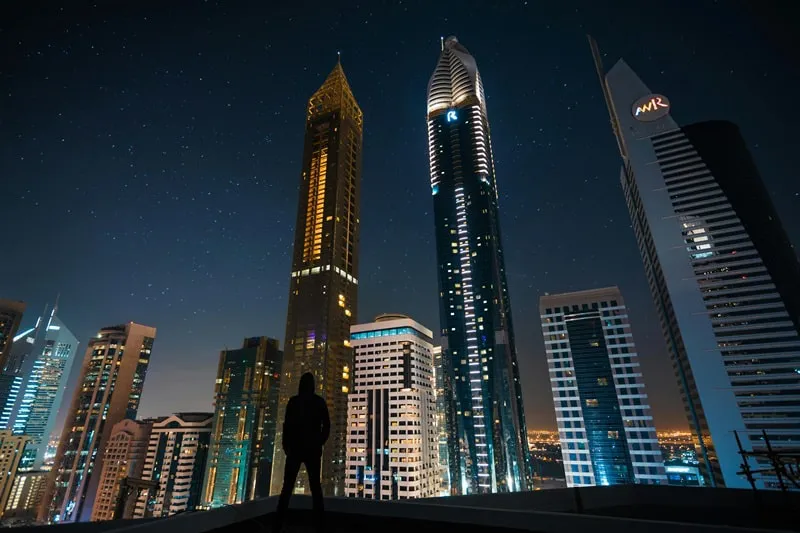
To obtain such a visa, one of the following conditions must be met:
Since 2020, freelancers and entrepreneurs have been able to obtain a special work visa in the United Arab Emirates through the UAE government portal. This visa is typically issued for one year with the possibility of extension. To participate in the programme, it is necessary to have medical insurance covering treatment in the UAE, and an income of at least 5,000 dollars per month, confirmed by bank statements for the last three months. Freelancers will need to provide a valid one-year work contract, while entrepreneurs must provide documents confirming business ownership for at least one year.
You can also obtain a long-term "Golden Visa" in the United Arab Emirates for up to 10 years. This visa is automatically renewed and does not require a work invitation or significant capital. It is granted to investors, entrepreneurs, scientists, talented students, cultural and artistic figures, highly qualified doctors, and other specialists in priority areas for the UAE.
The 1980 law regulates all labour relations between employer and staff. This law differs from standards adopted in European countries. In some aspects, it is stricter than European regulations. There are provisions aimed at ensuring maximum protection of employees' labour rights. Articles 8 and 12 of the labour code establish that:
In recent years, the Emirates has seen an increase in demand for highly qualified foreign specialists.
When seeking employment in the UAE, the following is valued:
Candidates must verify their education level. Medical workers also pass a special exam. Generally, preference is given to candidates willing to sign contracts for a year or longer to minimise economic losses associated with training workers for short periods.
Before starting a job search in the UAE, it is necessary to prepare a resume (CV, Curriculum Vitae), including all personal data and indicating your education level. Preference is given to those who provide reference letters from previous workplaces, especially in Dubai. Job searches can be conducted independently or through specialised recruitment agencies.
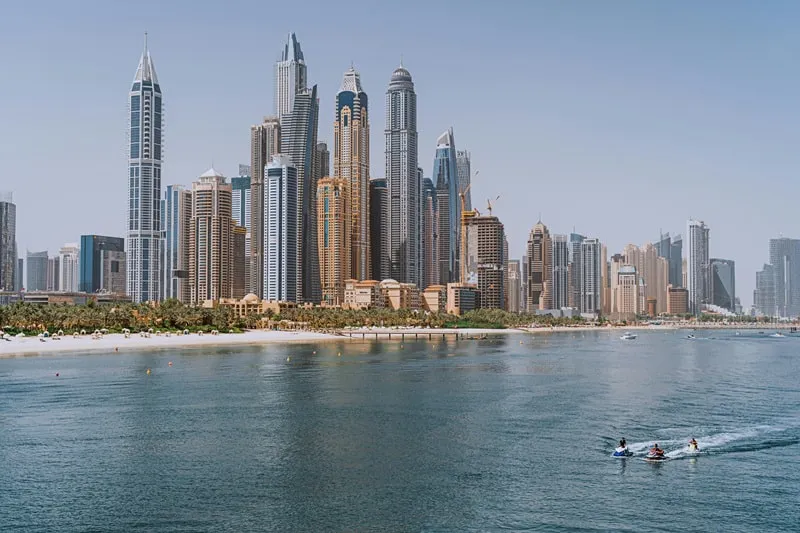
Due to active tourism industry development, the UAE government actively recruits foreign workers, especially in tourism-related service sectors.
Prospects for employment in Dubai are available for specialists with economic and financial education, as well as market analysts, marketers, and banking professionals.
In the UAE, the highest-paid fields are oil and gas industry, banking, construction, real estate, medicine, and IT.
One obstacle is that many Russians do not speak English or Arabic at a sufficient level for high-paying positions. As a result, they often have the following income levels:
Another important aspect is internship. People who want to increase their chances of finding work in the UAE and increase their income should complete an internship. The country's authorities offer several programmes for specialists with higher and secondary education. The basic requirement is English language proficiency at Intermediate level. Additionally, practical skills in the chosen field and a relevant education diploma are required. The age limit for interns is 35 years.
An internship candidate signs an official agreement with an organisation for a period of 3 to 24 months. The company must provide accommodation, annual transfer, insurance, and a stipend. The compensation amount is discussed individually, but on average it is not less than $500 per month. The agreement may include mandatory employment upon completion of the internship.
Initial expenses in Dubai can vary significantly depending on goals and planned lifestyle. Airfare for direct flights from Moscow starts from 45 thousand rubles for a one-way ticket. Visa arrangements also have different options: from free if paid for by the employer, to $1,360 for an annual freelancer licence. For those considering business investments or property purchase, expenses will be substantially higher.
For the first three months of life in the Emirates, it is recommended to set aside at least 20,000 AED (about 500 thousand rubles). This amount is sufficient to cover rental housing, utilities, food for a family of 2-3 people, transportation costs, and entertainment.
Housing when moving to Dubai is a significant expense item, even if not choosing the most prestigious areas such as Bur Dubai or Palm Jumeirah. For example, apartment rental in areas like International City or Deira starts from 5000 AED (about 130 thousand rubles), with payment for three months usually required upfront when signing the contract. In more elite areas, rates start from 13,000 AED (about 350 thousand rubles). Additionally, real estate agent commission is often required, ranging from 2 to 5 percent of the rental cost.
Utility services for apartments of 80 sq m or larger cost about 660 AED per month (about 17,000 RUB). Apartments lack central heating as even in winter, daytime temperature maintains at 24°C, though nights can be cool (approximately 14°C). In most cases there is centralised air conditioning.
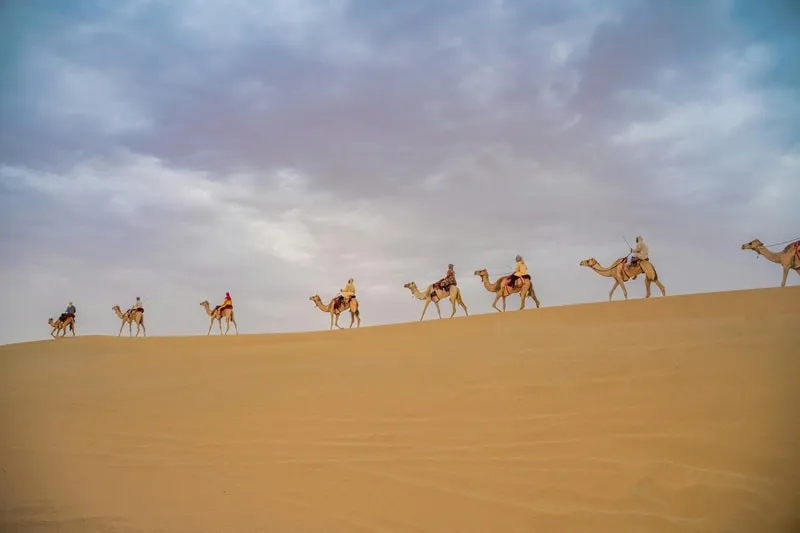
It is not recommended to plan moving to Dubai during peak season, as apartments are quite difficult to find during this period. Housing costs increase by at least 1.5 times compared to other months. The best times to move are in the second half of January, in February, May, or September.
It should be noted that in Dubai, food products cost approximately 25% more than in Moscow. There may be difficulties with baby food, as the selection is not as diverse as in Russia. One person will need to spend about 800 AED per month, not including expenses for cafes and restaurants.
Keep in mind that you will need to spend more on taxis due to the necessity of reaching remote areas, as well as on sunscreen. In the Emirates, going out without sun protection cream and headwear can lead to serious problems.
Mobile communication and internet in Dubai costs at least 550 AED per month. Car rental starts from 75 AED per month, and petrol costs start from 3.30 AED per litre. To use a car, you will need a local driving licence, obtaining which costs approximately 7000 AED.
Bus or metro rides cost 8-14 AED (better to use special cards), and city taxis cost from 15 to 60 AED. Annual insurance starts from 630 AED, but dental services are paid for separately. Families with children will also need to additionally pay for education in schools and kindergartens.
Dubai's nature is unique and diverse. This region is bordered by the sea. Meanwhile, a significant part of the territory is desert. In Dubai, you can also find small mountain formations that add variety to the landscape. The city is famous for its greenery: you can see beautiful trees and bright flowering plants here. Precipitation and cloudy weather are extremely rare.
Despite the obvious advantages, there are certain disadvantages that may be noticeable to Russians. Dubai's nature might seem monotonous due to the predominance of desert landscapes and lack of greenery. There are no rivers, forests, and fields that many Russian residents are accustomed to. Even lawns in some parks are made of artificial grass. Additionally, air pollution levels exceed the norm by three times most of the time.
The transport system in Dubai is characterised by high levels of comfort and cleanliness. All types of public transport, including metro, buses, trams, and water transport, are equipped with air conditioning. An interesting feature is air-conditioned bus stops. The unified Nol transport card is used to pay for all types of public transport except taxis. It's worth noting that public transport is well-developed specifically in Dubai. In other regions of the country, personal vehicles or taxis are often required for transportation.
In Dubai, you can find a wide assortment of food products, making it an attractive region for people with different preferences. There are various shops suitable for different budgets. There are also many cafes and restaurants: from inexpensive street food outlets where you can eat for just a few dollars, to elite restaurants with Michelin stars. One of the disadvantages is that some products, especially vegetables and fruits, can be tasteless, which, however, has long been encountered in Russia as well.
In Dubai, specialists with Russian higher education diplomas are accepted for work with no issues. Bachelor's, specialist's and master's degrees, as well as secondary education diplomas, including technical schools, are subject to legalisation. If the receiving party requires a retraining diploma, it is also subject to verification at the Consulate.